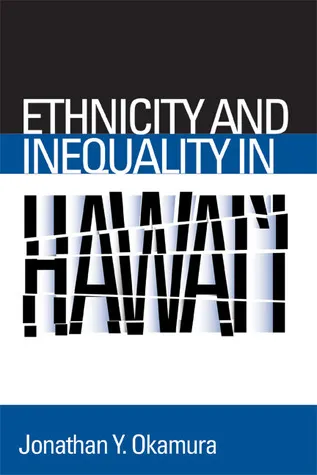Ethnicity and Inequality in Hawai'i
By (author): "Jonathan Y. Okamura"
Publish Date:
March 1st 2008
ISBN1592137555
ISBN139781592137558
AsinEthnicity and Inequality in Hawai'i
Original titleEthnicity and Inequality in Hawai'i (Asian American History & Culture)
Challenging the dominant view of Hawai'i as a "multicultural model"—a place of ethnic tolerance and equality—Jonathan Okamura examines how ethnic inequality is structured and maintained in island society. He finds that ethnicity, not race or class, signifies difference for Hawaii’s people and therefore structures their social relations. In Hawai'i, residents attribute greater social significance to the presumed cultural differences among ethnic groups than to more obvious physical differences, such as skin color.According to Okamura, ethnicity regulates disparities in access to resources, rewards, and privileges among ethnic groups, as he demonstrates in his analysis of socioeconomic and educational inequalities in the state. He shows that socially and economically dominant ethnic groups—Chinese Americans, Japanese Americans, and whites—have stigmatized and subjugated the islands’ other ethnic groups—especially Native Hawaiians, Filipino Americans, and Samoans. He demonstrates how ethnic stereotypes have been deployed against ethnic minorities and how these groups have contested their subordinate political and economic status by articulating new identities for themselves.
